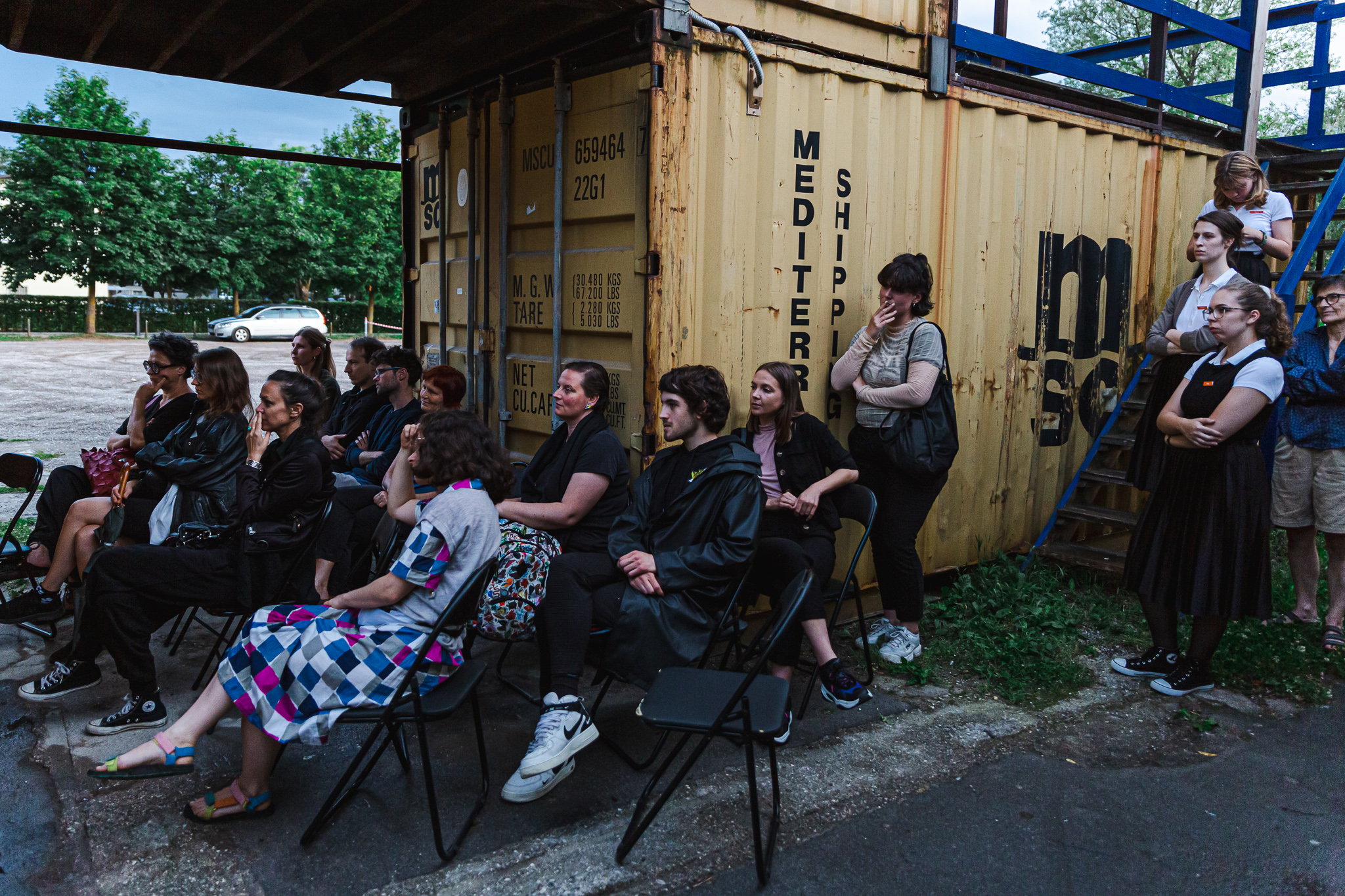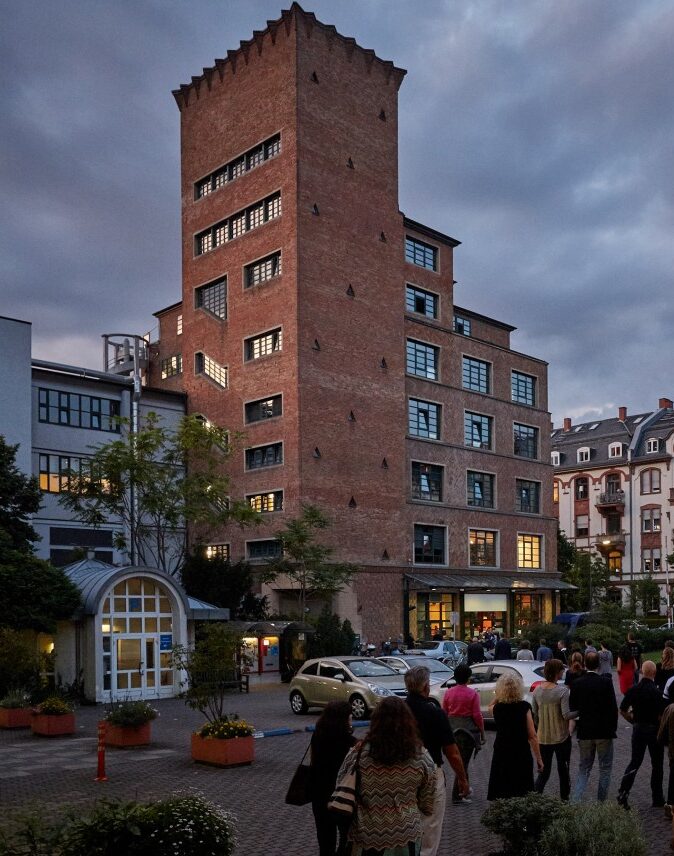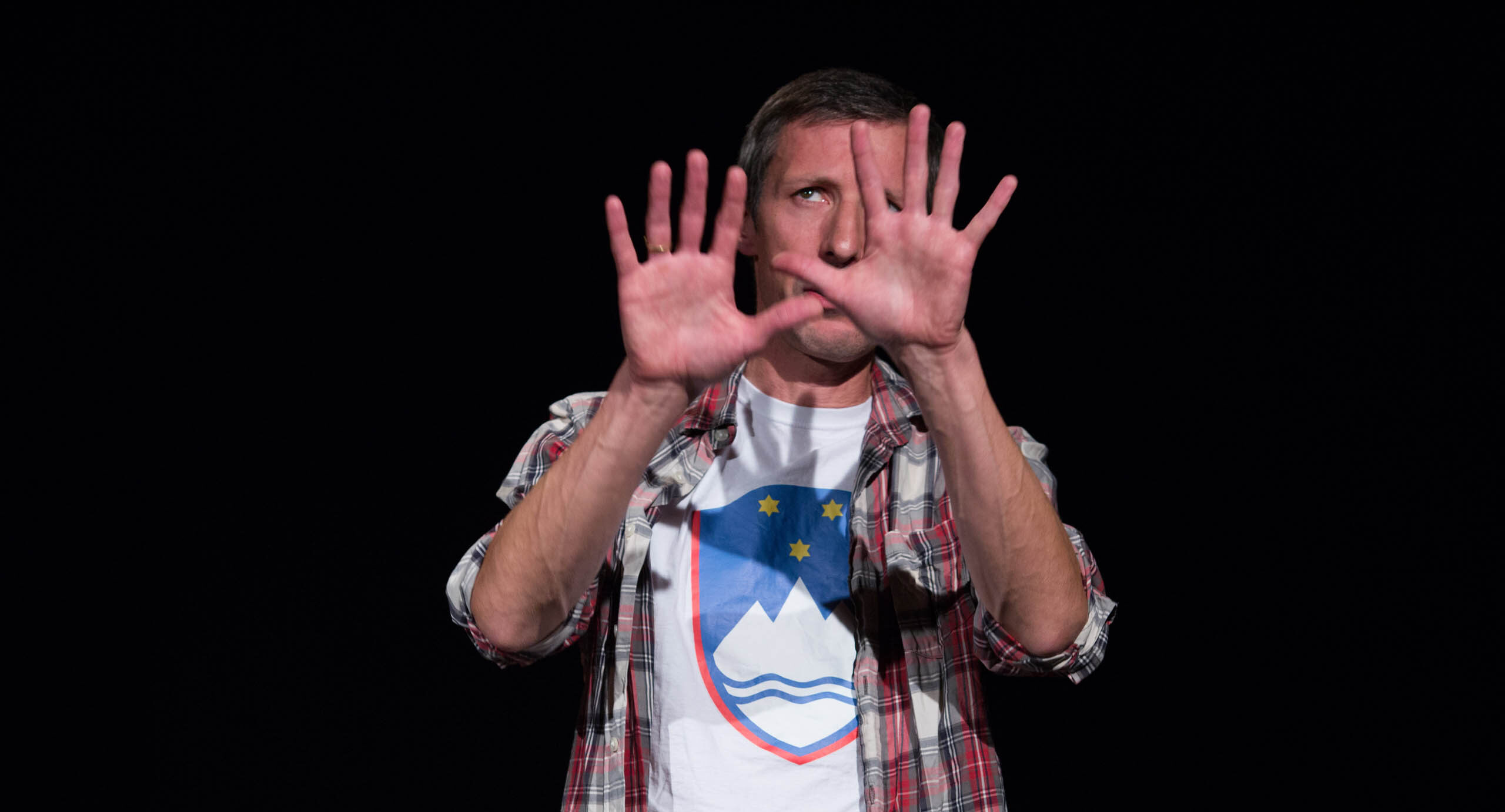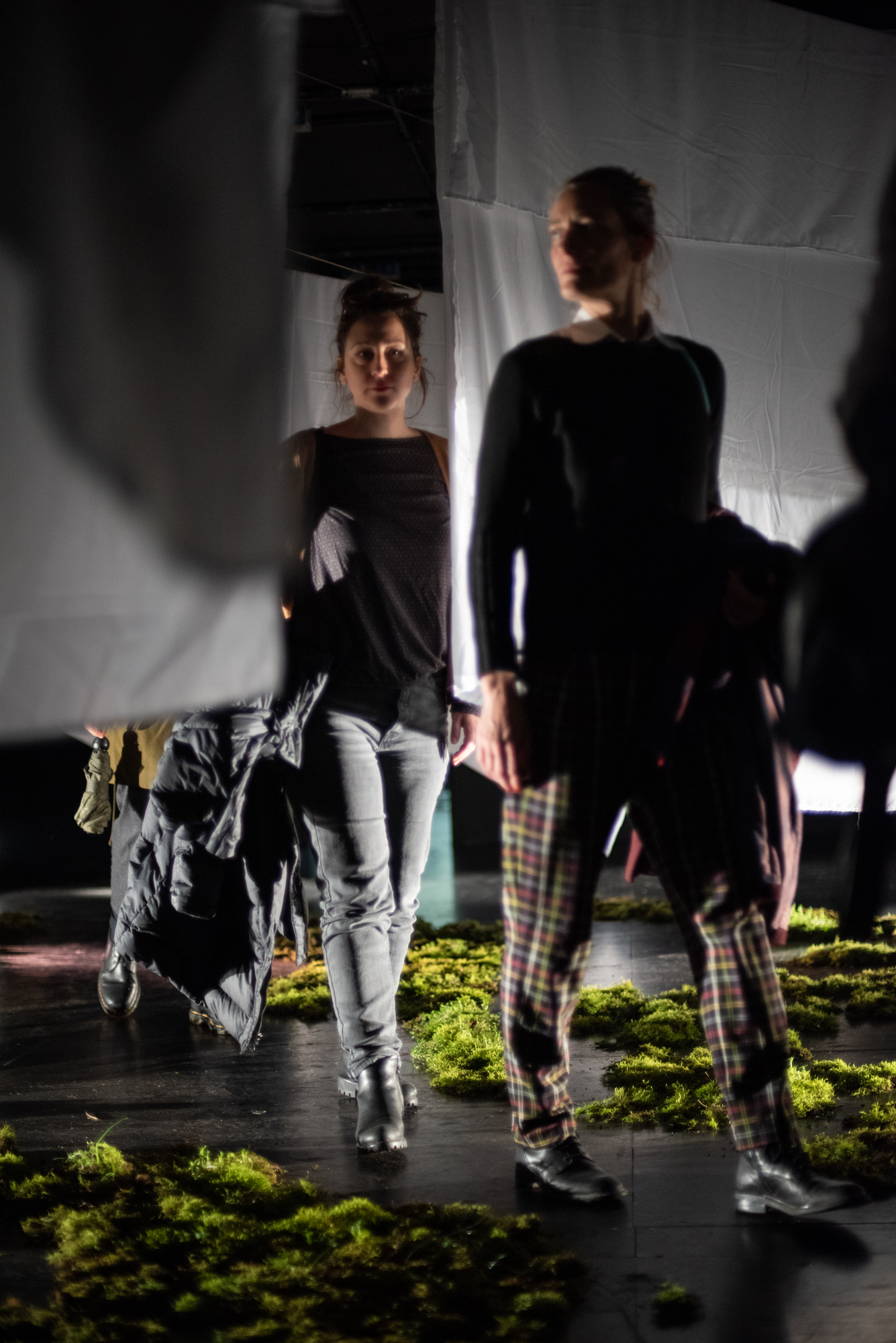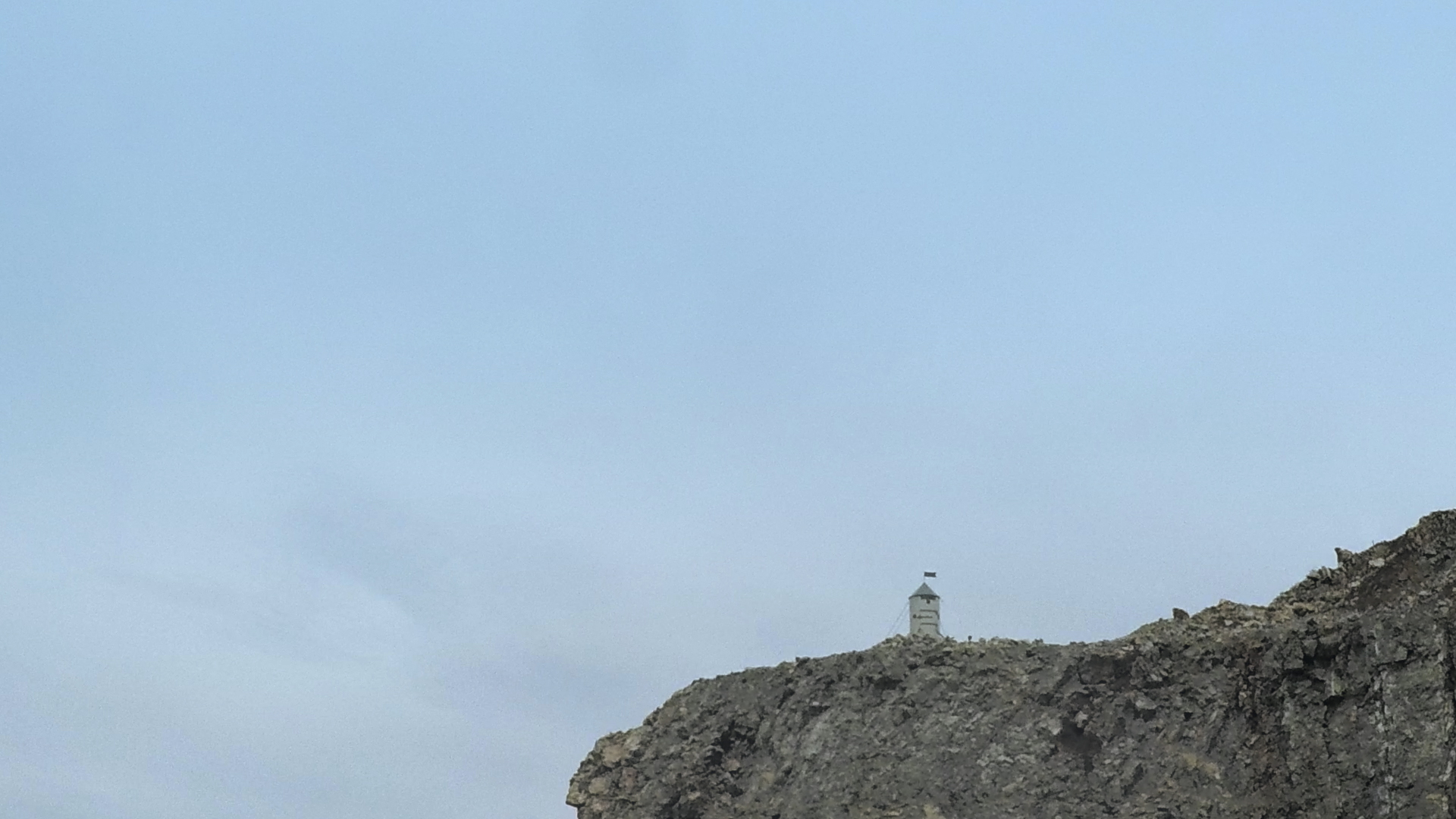Mateja Bučar: House Rules
Contemporary life is subject to certain actions, patterns and repetitive movements of objects and bodies, which can also be considered through (the concept of) choreography. Similarly to the content of containers, these scenarios are not completely visible and clear; we could say that contemporary life is full of hidden and opaque choreographies. The containers that belong to infrastructure operate uninterrupted and usually disappear under the threshold of visibility. The choreography by Mateja Bučar will therefore attempt to establish a minimal framework to make this everyday urban choreography visible and discernible. Bučar wishes to question the reciprocity between the human body and the object of container and its waste materials that are a derivate of the economic matrix of capitalism. In her choreography, waste assumes a performing position, proposes a movement in a reciprocal relationship with the human performing body. Mateja Bučar will conceptualise the choreography as a relationship between a performing/dancing body and the objectness of the world today – it will not stop even when the performing/dancing body is absent and will allow the choreography of objects to continue autonomously.
- Installation/performance
Author: Mateja Bučar (in collaboration with Vadim Fiškin)
Performer: Primož Bezjak
Sound: Makita, DUM
Producer: Tina Dobnik
Technical director: Igor Remeta
Coproduction: Maska Ljubljana and Mladinsko Theatre (The New Post Office project) and DUM – Association of Artists
Opening: 28.6.2022
Alja Lobnik: Under the Threshold of Visibility: Waste and Abandon • lecture

The basic characteristic of an infrastructure is this: when it is operating uninterrupted, it often disappears from sight. Becoming the prevailing (cultural) technology of the 20th century, the system of containers is founded on an exceptional state of the container, its temporary status, as the goods in it disappear from any form of control for a short period of time, while the container itself becomes the only object of procedures (loading, unloading, customs procedures, etc). The game of (in)visibility therefore structures our present. The inside of an abandoned container often becomes a space of what is abandoned, emptied, illegal, thrown away, and a certain sticky, slowly disintegrating materiality that surpasses the limits of life and deaths and that needs to be taken care of. The lecture will focus on the status of waste and touch upon the relationships between human and non-human factors in the choreography and work by Mateja Bučar, who often plays with the reciprocity of the relationship between a thing and a person. Matter is no longer a passive substance waiting for a social inscription but may “kick back” (Barad).
Primož Krašovec: The War Form of Capitalism? • lecture

Capitalism (at least in theory) replaces the war forms of social competition with the economic ones (instead of direct pillaging and acquiring the spoils of war, it introduces an economic competition between individual companies, while the monopoly over the armed forces falls under the state). The question of containers, however, is connected to the question of infrastructure and logistics and is, among the contemporary economical entities, perhaps the most important for the Latin American drug cartels as they do not operate following the principles of economic competition but (at least at first sight) following the pre-capitalist way of ensuring a war dominance over a territory. This is why they are not facing the pressure of competition to make endless technological innovations, but compete with other cartels over trade routes and, rather that productivity, they advance the possibilities of supplying ever larger quantities of cocaine into the USA and Europe – where infrastructure and logistics are key. Yet the cartel still operate in the framework of capitalist world market and the lecturer will try and discover whether they function as an anomaly, as atavism, or as a hybrid of both.







